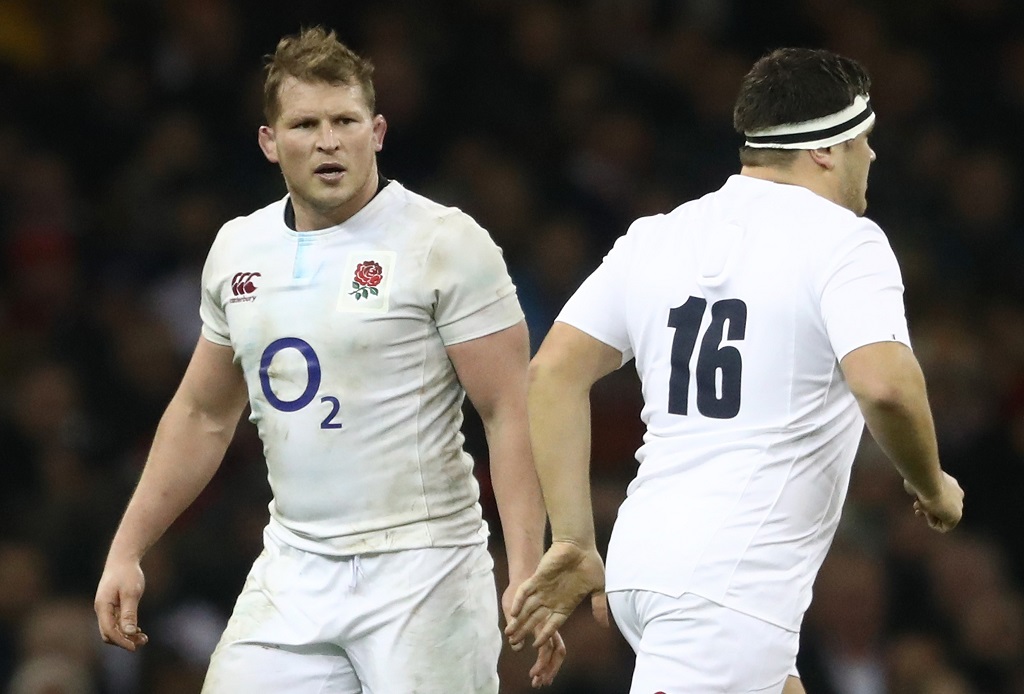(Photo: Getty Images)
By Jeremy Guscott
I’m on a mission to make Rugby Union an 80 minute game for players again. The best way to achieve that is for the number of replacements to go down to four or five initially, and then to move back to the old system of having injury only subs.
Some people will get jumpy and say why, but I say why not? We continually change the laws, so why should replacements be any different? Let’s take the number of subs down and see if it benefits the game – and my belief is that it will be a massive improvement.
It would work not just from the point of view of the enjoyment that players get, but also in terms of attractive rugby for spectators right across-the-board.
I played from the age of seven, and during that period the number of replacements went up from two to seven. I grew up wanting to be in the starting 15, and over the course of my career that never changed – I wanted to be on the field from the start to the final whistle.
Being substituted every game must be a horrible thing, and no player ever wants to start on the bench – and if they do want to be a ‘finisher’ they are playing the wrong game.
I believe the game would be more skilful, with more attacking play encouraged. Players will have to be fit for purpose, so for those front row forwards who were fit for only 50 minutes it would be a bit of a shock to the system if they had to play for a further half-hour.
It might take a bit of adjustment, with front five forwards especially losing bulk and being able to run for longer, but it would level out. Because everyone effectively gets tired together, you are unlikely to see teams skate away because of superior fitness. However, with the catch-and-drive and rolling maul contest of strength between the forwards emphasised, it will open space up for the backs to exploit.
Any three-quarter should be able to last 80 minutes with ease, but so should a prop, or lock, if they are in the right shape.

I’m not a medic, but I also believe there would be less of the continuous physical pounding you get in the modern game, and the injuries that come with it. It sounds logical that the fewer big guys you’ve got coming off the bench, the fewer big collisions.
There might be some players who would be against the reduction in the bench numbers because there would be fewer opportunities to play and earn, but your aim should always be to be good enough to be in the starting 15, whatever the level. Agents might be unhappy, but the rest of us won’t be.
If I was in charge of the Premiership I would reduce the number of replacements immediately, and overnight it would become the most attractive league in the world.
The game would be less complicated to follow, it would be quicker, as well as slightly smaller, and one where you hit-and-move rather than attempting to steamroller your opposite number. It would encourage players to develop greater tactical nous.
There is much more crash-bang-wallop than there was when I played, and sometimes that approach gets a little stale. With fewer replacements the game will open up more quickly, and you won’t need to go through 41 phases to create a drop-goal attempt like Ireland did against France.
It led to a Grand Slam for Ireland, and it was brilliantly done by Johnny Sexton – but I’d like to see more tries settling games than mega-phase moves. Moves like the one that ended with Sean Maitland’s try against England, or like Sam Underhill’s brilliant cover tackle for England to stop Wales scoring in the corner at Twickenham.
This game is unique, and quirky, and I believe a 15-man game puts the emphasis back on enhanced skill, strength, and stamina. For instance, how can you call yourself the greatest prop in the world when you play for 50 minutes?
Even in the modern game you can see some players changing shape, getting trimmer to last longer, especially big forwards like Billy Vunipola, Alun-Wyn Jones, Jonny Gray and George Kruis. They can play 80 minutes no problem, and with fewer replacements more forwards will have to get fitter.
Some will argue that injury-only replacements will encourage fake injuries and cheating, and with stakes high and money involved in the pro game that it will be abused. But I believe the game is bigger than that, and that it is in everyone’s interest for Rugby Union to remain as distinctive as it always has.
It is crucial that we keep hold of its unique qualities, and I believe that reducing replacements from eight to five will help to do that.
Health & Safety dictates it has to be props propping, so that means either three front row replacements, with two props and a hooker, or only two, with one replacement prop who can play both loose-head and tight-head, and a hooker. The two other replacements could be either backs or forwards, your call.
There will be opposition, because the current system gives coaches more choice, and some supporters like the idea of impact players coming off the bench. However, there is nothing quite like a game of attrition where players go head-to head for the full 80, using their ability to try to get one over their opposite number as they tire.
Let’s make the change – the game will be more skilful, and even better to watch.























